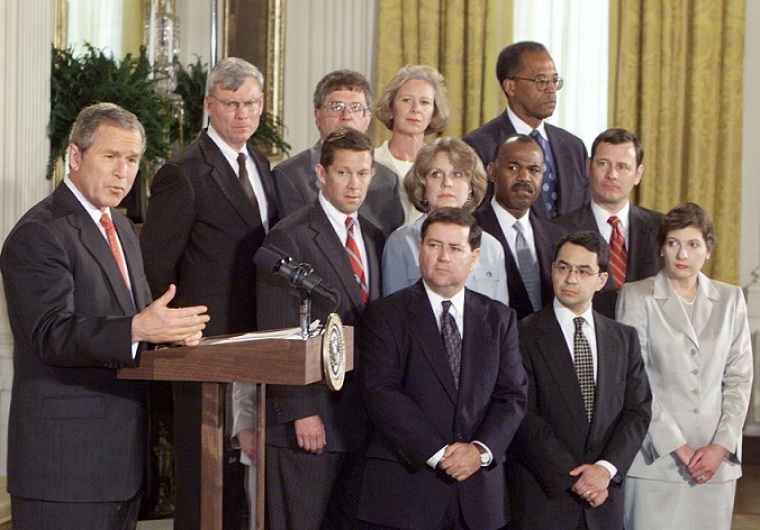6th Circuit: 32 million citizens of Ky, Mich, Ohio & Tenn have authority on marriage, not judges

NASHVILLE, Tenn. (Christian Examiner) – Plaintiffs argued the merits of same-sex marriage on many bases, wrote Judge Jeffrey S. Sutton in crafting the opinion of the U.S. Sixth Circuit Court of Appeals, but "not one ... makes the case for constitutionalizing the definition of marriage and for removing the issue from the place it has been since the founding: in the hands of state voters."
With that opinion, the 6th Circuit became the first among the federal courts of appeal to acknowledge the validity of any of the 28 state referendums which voters passed to define marriage as between a man and a woman. The effect is to maintain the traditional definition of marriage in Kentucky, Michigan, Ohio and Tennessee, each having appealed lower court rulings that had annulled voter initiatives in their respective states.
In 2006, the Tennessee marriage amendment passed with 81 percent of the vote. The other three states passed their respective ballot referendums in 2004, with 75 percent of the vote in Kentucky, 62 percent in Ohio, and 59 percent in Michigan.
Sutton said each state in the Sixth Circuit "has long adhered to the traditional definition of marriage," and he also took a narrow view of the U.S. Supreme Court ruling that overturned the Defense of Marriage Act which defined marriage in traditional terms. He said that ruling intentionally addressed the narrow question of whether the federal law was an "unprecedented intrusion into the States' authority over domestic relations" but that the decision did not address the validity of state marriage laws.
The three-person panel of the 6th Circuit voted along political lines, with two George W. Bush appointees in the majority and a Bill Clinton appointee dissenting.
Partisanship also has been evident in the multiple federal court rulings that overturned voter approved amendments to define marriage in traditional terms. In those instances, the majority of the courts were liberal appointees.
Not surprisingly, this trend of dramatic support for homosexual marriage coincides with the changes President Obama has been able to effect in the makeup of the courts.
The New York Times reported Sept. 13 that for the first time in a decade "judges appointed by Democratic presidents considerably outnumber judges appointed by Republican presidents" and that Democratic appointees who hear full cases "now hold a majority of seats on nine of the 13 United States Courts of Appeals."
Sutton concluded the 6th Circuit opinion by saying it was an appropriate ruling regardless of how voters decided the issue.
"In just eleven years, nineteen States and a conspicuous District, accounting for nearly forty-five percent of the population, have exercised their sovereign powers to expand a definition of marriage that until recently was universally followed going back to the earliest days of human history.
"When the courts do not let the people resolve new social issues like this one, they perpetuate the idea that the heroes in these change events are judges and lawyers," he wrote.
"Better in this instance, we think, to allow change through the customary political processes, in which the people, gay and straight alike, become the heroes of their own stories," he said, "by meeting each other not as adversaries in a court system but as fellow citizens seeking to resolve a new social issue in a fair-minded way."
In October, the Supreme Court announced it would not hear in its current docket any pending cases queued for possible consideration about the constitutionality of homosexual marriage. Legal analysts said the Sixth Court ruling now makes a 2015 hearing inevitable.